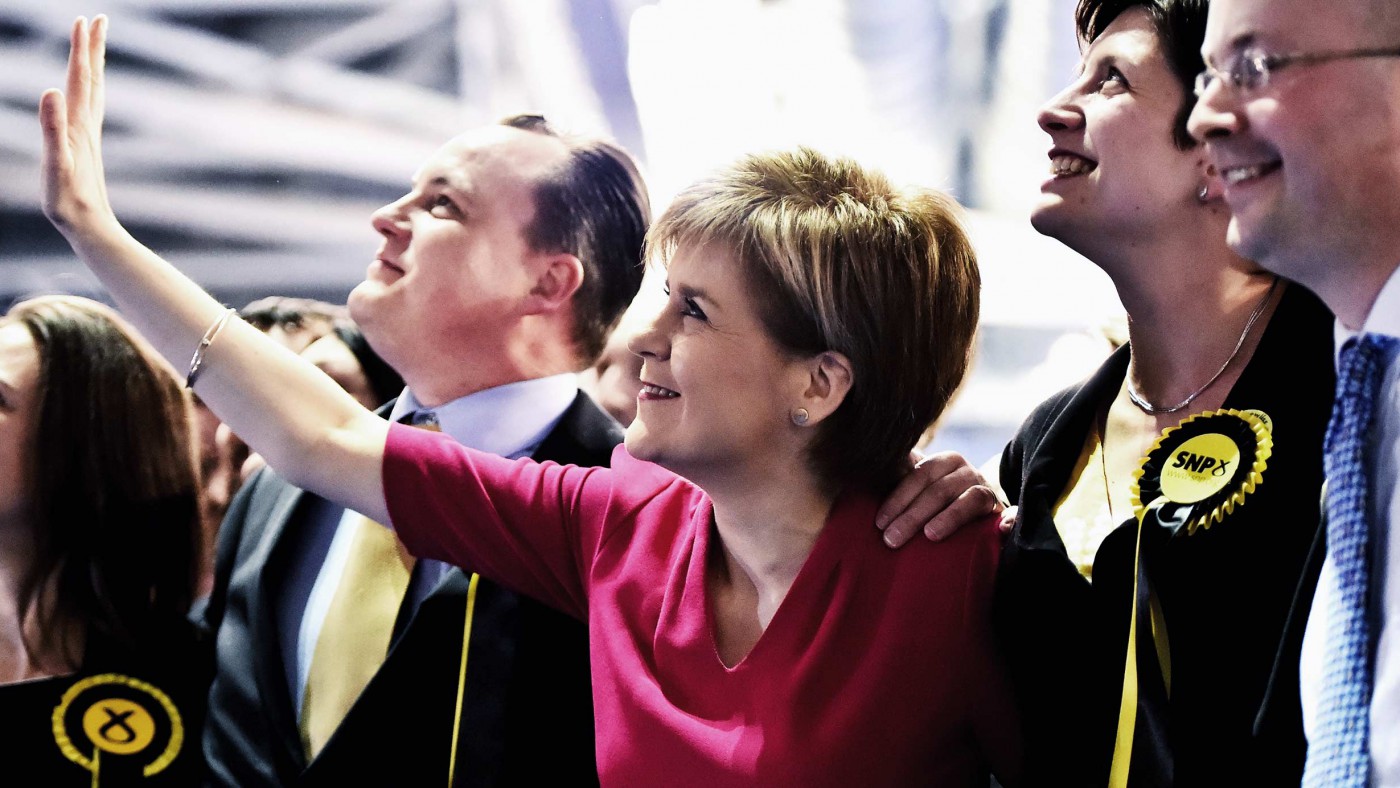I’ve long had a pet theory that voters get it right. General elections, in Britain at any rate, are won by the party that most deserves to win – or, at least, lost by the party that most deserves to lose.
There were moments over the past year, though, when I began seriously to doubt my theory. That’s not an easy thing to admit. There are few spectacles as risible as a politician blaming his voters. I still wince when I think of Denis Skinner, the far Left Labour MP, raging after his party’s 1983 defeat that there must be “no compromise with the electorate”.
And yet, as the polls refused to budge, I began to worry. I’ve always believed that there is wisdom in crowds, that democracy is the best system, that we should trust the masses over the experts. Yet an alarming number of voters appeared to have convinced themselves that our problems were caused by too much austerity rather than too much debt.
Labour, Greens, Scottish and Welsh Nationalists: all raged against “Tory austerity” as though it were a whim rather than a necessity. The reason public spending was not rising, they asserted – and seemed genuinely to believe – was not that we had run out of cash, but that the country was governed by psychopaths who took some kind of sadistic pleasure in hurting the poor.
On one doorstep, I was confronted by an angry trade union representative from the local hospital. The idea that there was a limit to government expenditure sent her into a purple, choking fury. I tried to explain that no one could live forever on credit. Imagine, I said, that you borrowed a load of money and rented a huge house and a sports car. Now suppose that you stopped borrowing. Your living standard would fall, wouldn’t it? I mean, never mind about paying off the debt: the very fact that you had stopped borrowing would mean you couldn’t keep up payments on the house or the car. There’d be no point in marching against “austerity”: you might as well march against gravity.
She was having none of it. Nor were the others we saw during TV debates or heard on phone-ins. It seemed as if the British people were about to vote like Greeks: petulantly, babyishly.
I should have known better. Although the anti-austerity crowd made the most noise – and may very well have intimidated some of their neighbours into silence – the general population was wiser. People evidently remembered where Britain had been five years earlier. They understood, even if their politicians were reluctant to spell it out, that you can’t spend your way out of trouble. At least, they did in England. Scotland was a different story.
Commentators struggle to explain the rise of the SNP: why, seven months after rejecting separation, should Scots turn to the separatist party? Those commentators miss the point. The SNP knows fine well (as Scots say) that opinion has not moved on the independence issue. Nicola Sturgeon had to keep promising that there’d be no re-run of the vote.
No, the SNP is better understood as Scotland’s version of Greece’s Syriza or Spain’s Podemos – a far-Left, populist insurgency. Like those parties, it has a touching belief in its ability to conjure wealth through alchemy. Asked in one of the leaders debates how she intended to deal with the deficit, Miss Sturgeon declared that ending “Tory austerity” would of itself raise living standards for working people and so generate more tax revenue. Got that? If the government only spends more, it will get to spend even more. Brilliant! Why has no one thought of it before?
Until yesterday, the SNP held six of Scotland’s 59 seats; now, it holds 56. Its victory demonstrates, and in some measure explains, the constitutional rift in the United Kingdom. English and Scottish people speak the same language, sing the same songs, eat the same food, watch the same TV, shop at the same chains. But their behaviour in the polling station has become wholly decoupled. England habitually opts for moderate Toryism while Scotland now backs the kind of socialism that was regarded as extreme even in the 1970s.
Why? There are several factors at work, and I don’t want to oversimplify, but the chief explanation is straightforward enough. There is a very weak link in Scotland between taxation, representation and expenditure. Because of the Barnett Formula, Scottish politicians get to spend money that has been raised through taxation elsewhere. This incentivises their constituents to vote for high-spending parties. Over time, that tendency has become self-reinforcing to the extent that the very act of calling for fiscal restraint is seen as alien, un-Scottish.
Not all Scots are on the Left, obviously. There are some free-marketeers in the land of Adam Smith. But the prevailing assumption among Holyrood politicians and pundits is that higher spending is a defining national characteristic. They don’t use those words, of course. They say, “We’re a compassionate, fair-minded people”. But it’s what they mean.
What can be done about it? Well, the SNP demands full fiscal autonomy, and David Cameron should hurry to meet that demand. Partly because linking taxation to expenditure north of the border might allow a revival, over time, of Right-of-Centre politics in Scotland. Partly because the measure will also be popular with English taxpayers. Partly, too, because, without such a reform, separatism will revive. And partly because greater autonomy for Scotland could bring about a new, devolved settlement for the entire United Kingdom, something that is long overdue. Mainly, though, because most Scots say they want it, and the SNP has won an unarguable mandate. What are we waiting for?


